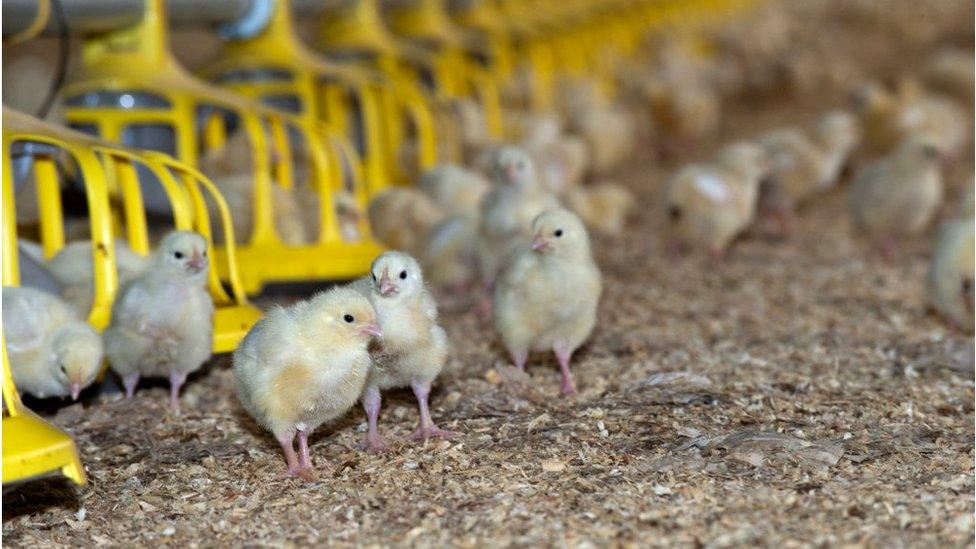Brexit: East Anglian turkey farmers warn of Christmas shortage
- Published
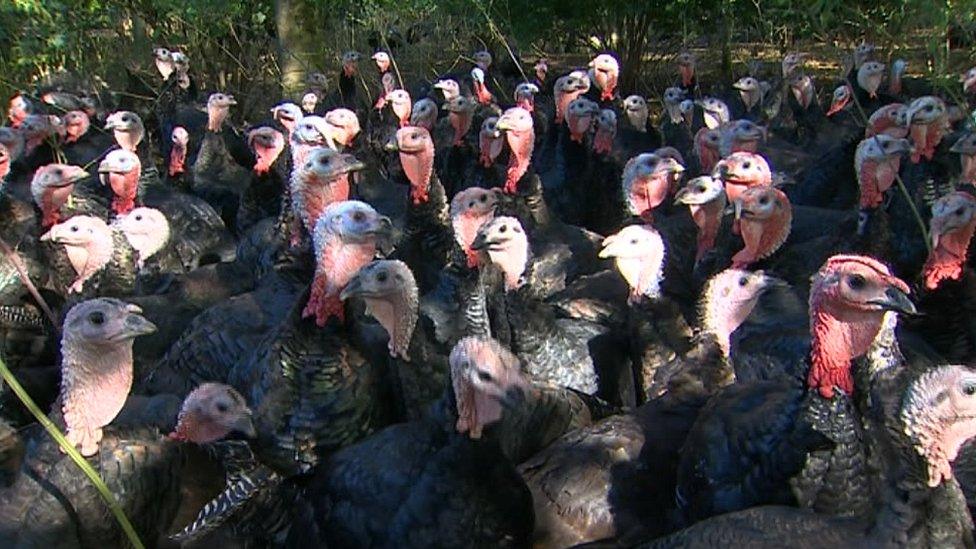
Turkey farmers are hoping they will get enough staff to process birds in time for Christmas
Turkey farmers are warning they may struggle to process enough birds to meet demand at Christmas.
Producers said new temporary visa changes allowing more foreign workers to help process the poultry may be too late.
Mark Gorton who runs Traditional Norfolk Poultry said he was short of staff and may not be able to process all his turkeys in time.
Some big scale processors said they had already cut back production.
According to the British Poultry Council, external, Christmas turkey production has dropped by 20% because of staff shortages.
Latest Defra figures, external show that farms in the east of England provide 21% of the nation's poultry.
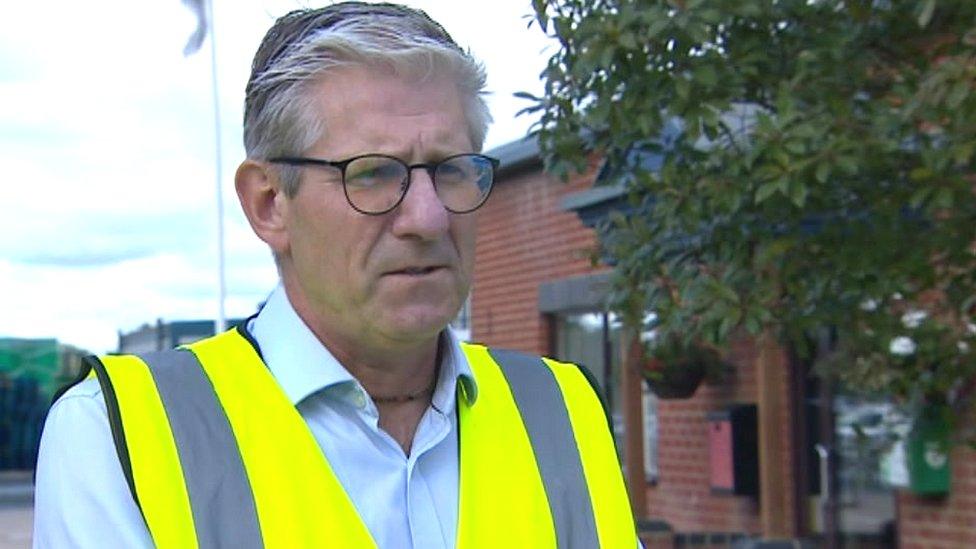
Poultry farmer Mark Gorton said he had struggled to get staff
Before Brexit, Mr Gorton relied on 400 extra workers from eastern Europe at this time of year.
"Brexit is 100% to blame for this. We've now got to go and appeal to overseas workers to come back, when we've spent the last two or three years sending them away," he said.
The government wants to see employers invest in more local workers but said it would allow 5,500 poultry workers to come to work in the UK on three-month visas.
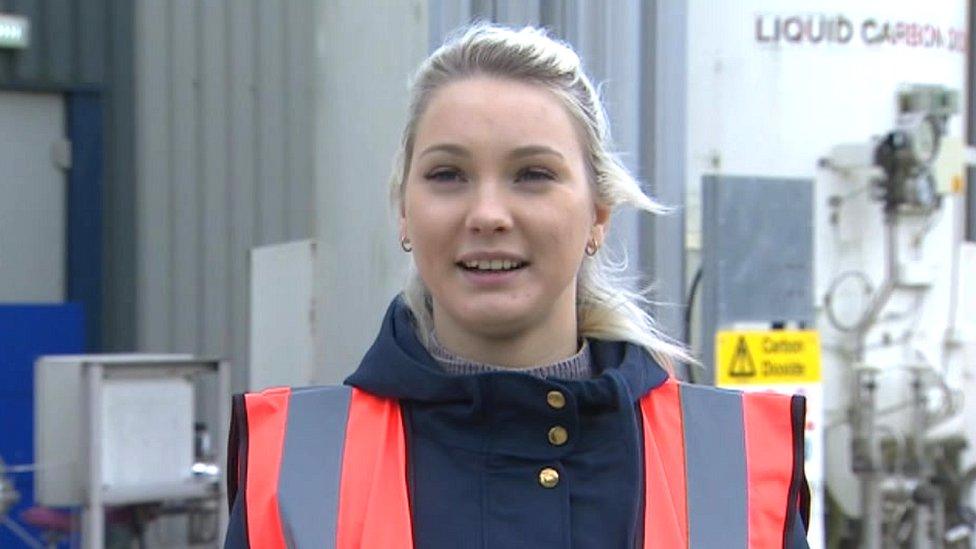
Kristiana Kreslina who works in Norfolk's turkey industry thought temporary workers would return from her home country of Latvia
Kristiana Kreslina works for the firm based in Shropham. She said her fellow Latvians would want to return to the industry, even if only for three months, but at a cost.
"Now they know their value, they would (want) more money," she said.
Mr Gorton said bringing in more foreign workers would be expensive, and involve him paying costs for visas, travel and accommodation.
"We won't have any choice other than to pass this cost on to our customers who in turn would have to pass it on to the consumer," he said.
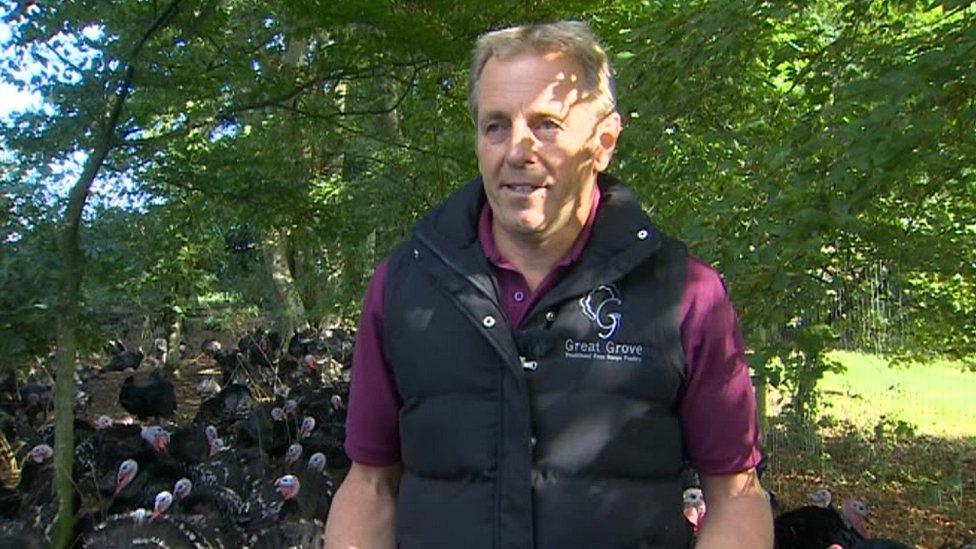
Steve Childerhouse employs mostly local workers but says the industry needs foreign labour
Small-scale poultry farmer Steve Childerhouse runs Great Grove Poultry near Rockland St Peter in Norfolk, supplying local farm shops and butchers.
He relies on local workers to help him with his 8,000 turkeys.
But he said those from abroad remained essential to the industry, as it was often difficult to find people with the right skill set.
"They have to be trained and if they live miles away, then how are we going to get them here?" said Mr Childerhouse.
He was also concerned about having enough staff to slaughter, pluck and process his turkeys in time for the festive season.
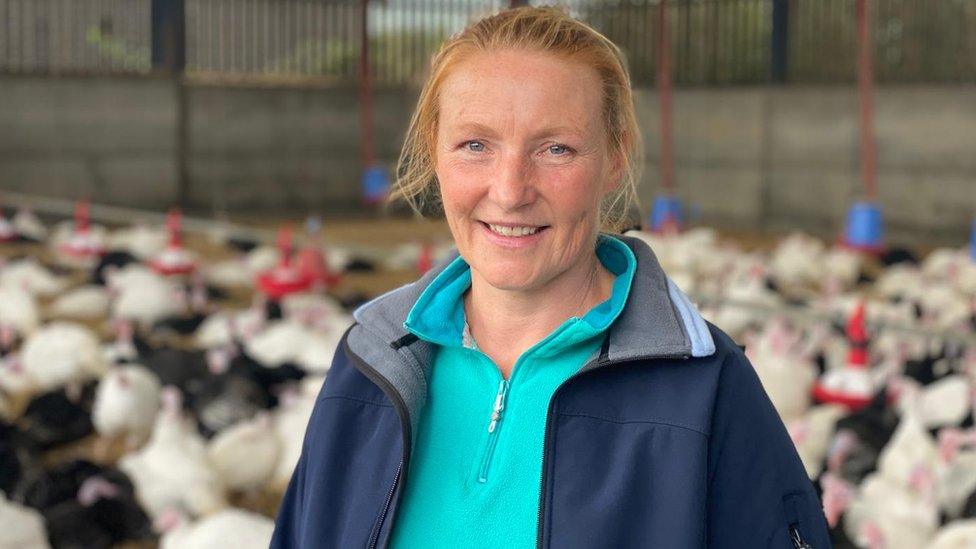
Farmer Theresa Young says her business cannot rely on UK workers
It is a similar situation at Bedford-based Southall turkeys.
The family-run farm at Great Barford said its entire year's profits hinged on the two festive weeks of the year.
Farmer Theresa Young said the temporary visas were essential for the business, until a longer-term solution could be found.
"We're hoping we will qualify for those visas, because we do rely on foreign overseas workers in the busiest season."
The farm has hired local workers in the past but said they had proved unreliable.
"We have a deadline to meet, so we need reliable staff who will turn up, eight o'clock in the morning, finish eight o'clock in the evening," she said.
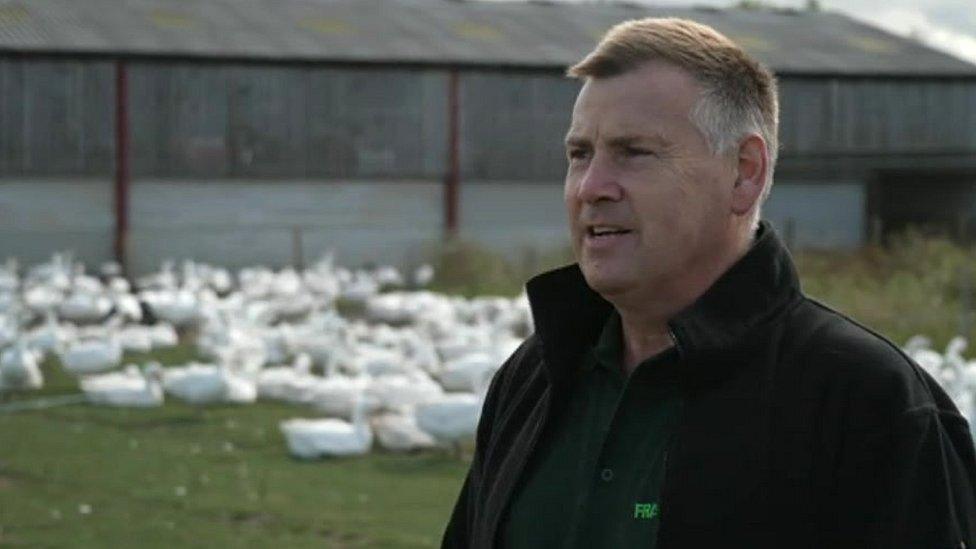
Poultry farmer John Franklin wants the government to come up with a long-term solution to the staffing crisis
A few miles away, at Franklins of Thorncote Farm near Sandy, Bedfordshire, they usually employ 10 Romanian workers at Christmas.
Processing birds is challenging, smelly work.
"You've got to hit the ground running. We used the eastern Europeans because they've been before, they know what to expect, they're not phased by it and they get stuck in," said John Franklin.
"We would like to pay more, but that's all got to be passed on to the consumer.
"Some of my answer to that is maybe we'll employ less people and get more mechanised and then that doesn't solve the problem either," he said.
Mr Franklin does not believe the government has thought the matter through.
"There's no planning, we need a long-term planning solution for this problem," he said.
DEFRA said training and wage increases would help build "long-term resilience".
It said: "We are moving to a high wage, high skilled economy and the government is encouraging all sectors, including poultry, to adapt and make employment more attractive to UK domestic workers."

Find BBC News: East of England on Facebook, external, Instagram, external and Twitter, external. If you have a story suggestion email eastofenglandnews@bbc.co.uk, external
Related topics
- Published26 September 2021
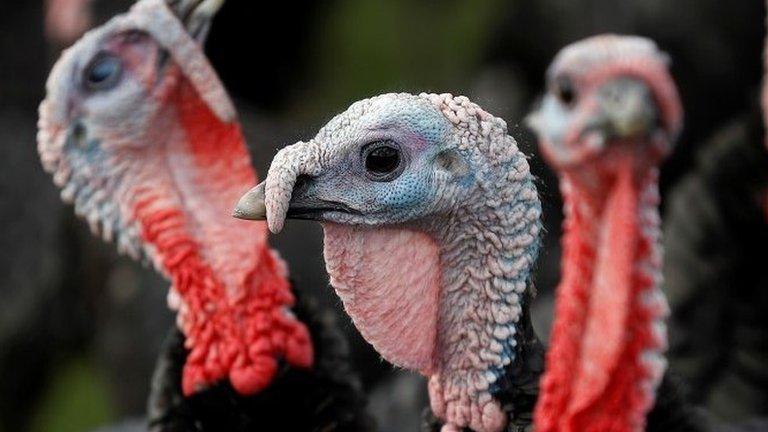
- Published26 September 2021
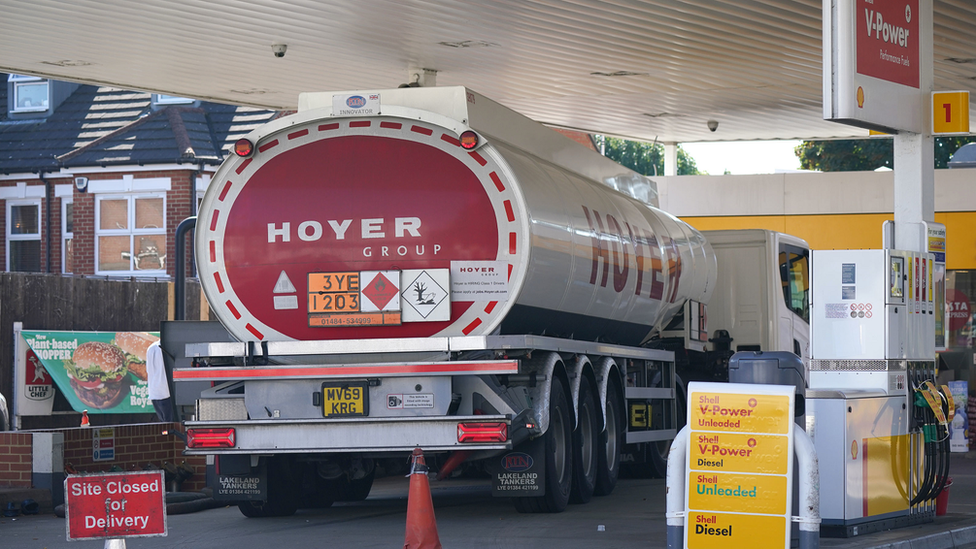
- Published18 June 2021
